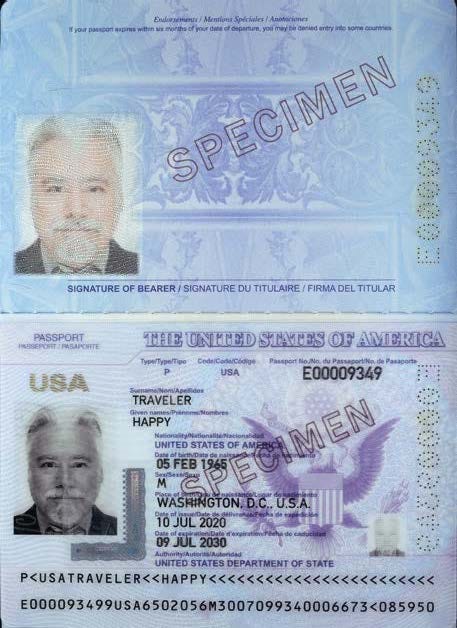BREAKING: A Federal Court Just Blocked Trump’s Passport Policy. If You’re Trans, Here’s What To Do.
The door is open—for now. Here’s how to navigate the shifting rules around passport gender markers.
On Tuesday, a federal judge in Massachusetts certified a lawsuit challenging the Trump administration’s passport policy, which blocked many transgender people from obtaining accurate gender markers—particularly “X” designations or corrections for those without invasive medical documentation.
As Erin Reed reports, the ruling expands a previous injunction to cover all trans people affected by the policy. The order took effect immediately. For now, that means trans people can apply for or renew passports under the Biden-era self-attestation policy—without needing a doctor’s letter or proof of surgery.
But this moment is precarious. The Trump administration will likely appeal. A stay could be issued. Already-issued documents could come under scrutiny. So if you're trans and your passport isn’t up to date, here’s what you need to know—and what you may want to do right now.
What the ruling does
The court certified two national classes:
Trans people seeking “M” or “F” markers that differ from their sex assigned at birth.
Trans people seeking an “X” marker who were previously unable to obtain one.
A gender marker is the “M,” “F,” or “X” designation on your passport that signals your gender identity. According to the ACLU of Massachusetts, the ruling now covers those applying to:
Obtain a new passport
Update the gender marker or their name
Replace a lost, stolen, or damaged passport
Renew a passport within one year of expiration
Judge Julia Kobick previously found that the policy expressed “a fundamental moral disapproval of transgender Americans.” The court’s order reverts passport processing rules to the State Department’s policy as of January 19, 2025, the last day before Trump’s restrictive policy took effect.
What you should do—based on your situation
UPDATE (6/20/2025): According to legal advocates and multiple passport agencies, the State Department is refusing to comply with the judge’s ruling in this case. If possible, wait until further guidance before submitting your passport for renewal.
If your passport is expired or expiring soon:
Apply or renew immediately. Even if your gender marker is incorrect, having valid documents is critical—especially with long processing delays and the risk of legal reversals.
If your passport has the wrong gender marker, but you don’t need to travel immediately:
Consider updating now. Submitting your application while this ruling is in effect could help preserve your ability to challenge a denial later, should the policy change again.
If your passport already has the correct marker:
Use discretion. You’re in a good position for now—but if the ruling is stayed or reversed, those with corrected documents may face risks. Unless your passport is expiring, it may be safer not to initiate changes.
What if you're trying to get an “X” marker?
This part is murkier. Some applicants have reported that the current passport form no longer includes an “X” marker option. This appears to be a lingering result of the Trump administration’s rollback.
However, the court’s order directs the State Department to process applications under the January 19, 2025 policy, which explicitly permitted “X” markers. Some advocates believe it may be possible to use an earlier version of the form that included the “X” option—but the success of that strategy is uncertain, and the risk of delays or incorrect coding is real.
As one legal expert I spoke with noted, federal systems may not be reliably handling “X” entries right now. Inaccurate data entry or misclassification is a concern, especially if back-end systems are inconsistent.
If you're pursuing an “X” designation, proceed carefully. Document everything, and consider seeking legal support if you encounter obstacles. You can check for updated forms or instructions at travel.state.gov.
A tip for faster processing
If you’re seeking to update your passport quickly, in-person appointments at a passport agency can offer real-time feedback on whether your application is being processed under the current policy.
To qualify for urgent service, you usually need proof of travel within 14 days. One practical option, as legal advocates have suggested, is to book a refundable hotel reservation in Canada. This type of booking can be used as documentation of upcoming travel and may qualify you for an in-person appointment—where you're more likely to receive confirmation that the agency is complying with the court order.
Make sure your documentation is truthful, and that it complies with State Department guidelines for urgent travel.
Why this matters
This isn’t just about bureaucracy. For many trans people, having incorrect documents means being outed at borders, denied international travel, or placed in unsafe situations. A passport that reflects your identity is more than paperwork—it’s protection.
The court’s ruling opens a door. It restores access to accurate ID, challenges a discriminatory policy, and recognizes the harm that’s been done. But the window may not stay open for long.
If you’ve been waiting for the right time to update your documents, this might be it.
For more updates on trans rights, legal shifts, and how to move through the world on your own terms, subscribe below.





Is it really a good idea to change my marker at all? Wouldn’t that just let the government know that I’m trans?
We live in NY. My daughter changed her name and identifier on her (EDL)license and birth certificate and now need to change it with Social Security? Has anyone done this recently?? And next she wanted to get a passport. Should we go ahead? We live in a Democratic and trans friendly state, which is luckier than most. Thoughts? Advice? Experiences?